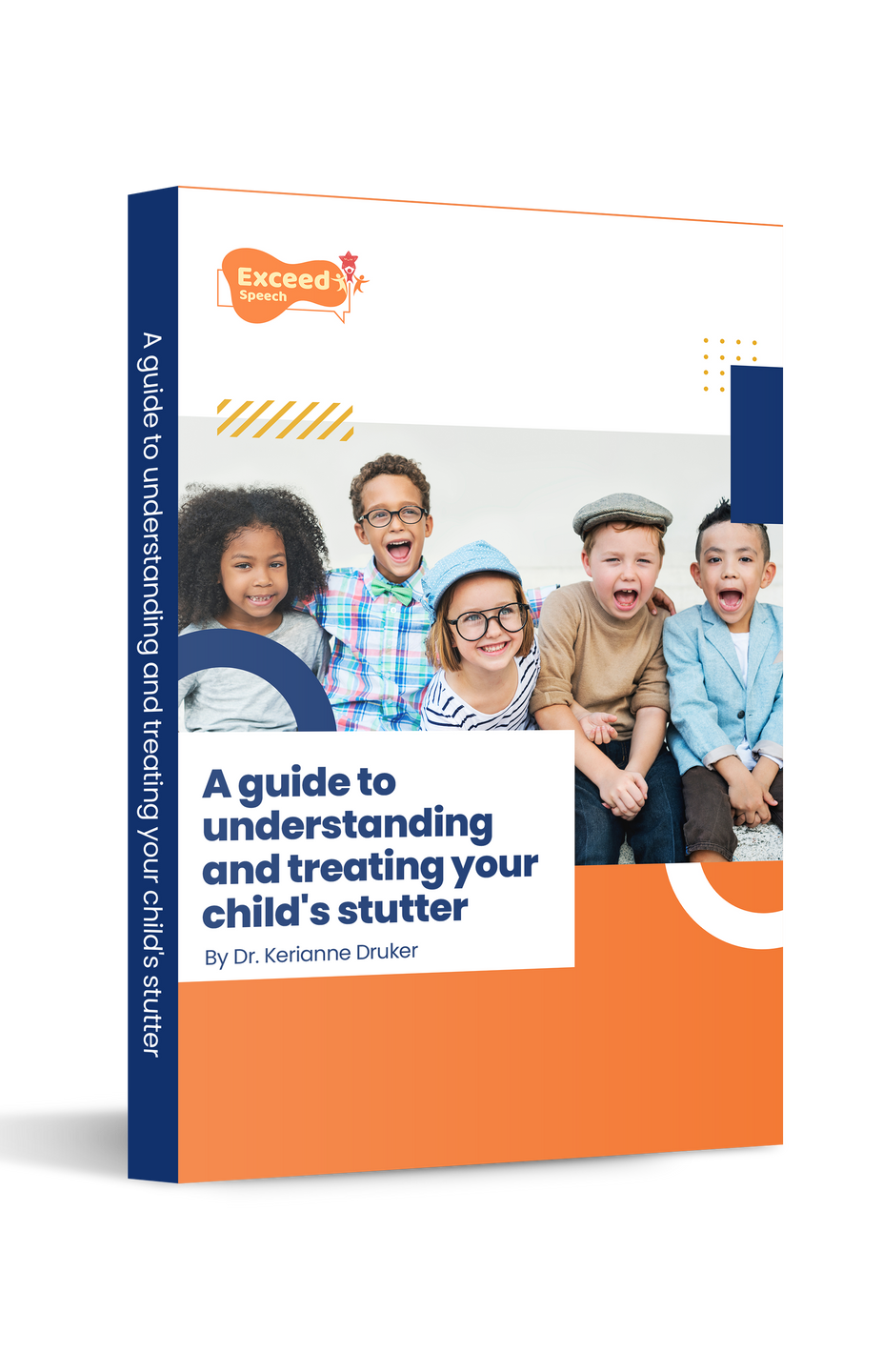Robust Theme
Dec 09, 2019 2020-04-08 7:40Robust Theme
Will my child’s stutter go away on its own?

Naturally, parents want to help their children through any problem they are facing. Watching a child suddenly have trouble talking and telling you their thoughts and feelings can be very distressing for a parent, and parents instinctively want to help their child through this challenge. Many parents immediately want to know if stuttering is just a short phase that the child is likely to grow out of, or if it is something that needs specialist attention.
This article will help you to understand when to get help for your child’s stutter, and why early intervention is so important for your child.
When to get help for your child’s stutter
Unfortunately, there is a lot of mixed advice available from medical and health professionals about when to intervene if your child starts to stutter. Up until recently, the research evidence suggested that it was best to monitor your child’s stutter for a period of time before intervening.
This is no longer the case!
According to Speech Pathology Australia, which is the national peak body for the profession of speech pathology in Australia, treatment for stuttering is recommended as soon as possible. This means that if you suspect your child has a stutter, or when you notice your child has started to stutter, it is recommended to seek help from a stuttering specialist as soon as possible.
Is stuttering normal for most children?
Many children go through a period of time where their speech becomes disfluent, around the age of 2 ½ to 3 ½ years old. This often coincides with a time that language develops rapidly for the child, and their speech system has a hard time keeping up with this growth in language skills. It can be difficult to tease apart normal speech interruptions, or disfluencies (i.e., repeated words or phrases) from stutters, but this can be done by a stuttering specialist.
Once it is determined that your child does indeed have a stutter, it is impossible to predict which children will ‘grow out of’ a stutter. This is why the gold standard recommendation is to seek treatment for stuttering as soon as possible. We now know that if a child has stuttered for 12 months or more, the likelihood of them recovering from stuttering reduces.
Early intervention for stuttering
Understanding how stuttering treatment works can help parents to understand why early intervention for stuttering is so important.
When we treat stuttering, the aim is stop your child from essentially ‘practising’ their stutter. This is because we do not want the brain pathways or connections for stuttering to become stronger and more reinforced through repeated use, as this can make stuttering harder to treat.
Put simply, stuttering treatment for young children aims to strengthen or practise the ‘fluent’ brain pathways and extinguish the ‘stuttering’ brain pathways. This is why the sooner we treat stuttering, the less chance your child has to practise their stutters.
In summary
Early intervention for stuttering is important because the longer a child lives with a stutter, the less likely they are to recover from this problem. The good news is that stuttering treatment can be very effective for your child. The stuttering treatment implemented in my PhD research was found to be more than 90% effective in overcoming stuttering for young children.
I have developed an online course that is designed to help parents overcome their child’s stuttering disorder, with immediate access to comprehensive and effective tips and tools. These tips can be put into practice straight away, so you don’t miss out on crucial time where your child’s stutter is not treated. Find out more.

Free eBook
A guide to understanding and treating your child’s stutter
Take a sneak peak of what the Stuttering Toolkit has to offer, and learn about the treatment principles that have proven successful for more than 90% of children who stutter.
Get Free eBook

